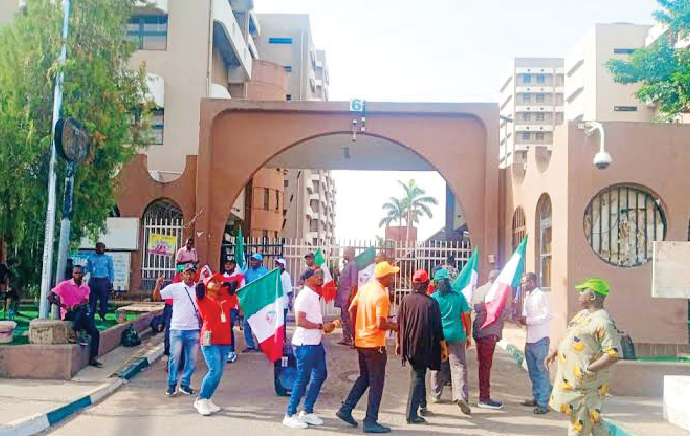The negotiations between the federal government and the organised labour over a new national minimum wage for workers last week reached a critical juncture.
With yet to agreed-upon figure, the ongoing wage dialogue reflect a history of tumultuous negotiations and the enduring struggle of Nigerian workers to secure fair wage amidst a daunting economic situations.
For instance, Nigeria’s journey with minimum wage legislation began in 1981 under President Shehu Shagari. The availability of that law commenced the process of strong advocacy by the Nigeria Labour Congress (NLC) led by the late labour centre’s president, Hassan Sunmonu. The minimum wage was then pegged at N125 per month.
Over the decades, adjustments to the minimum wage have been sporadic and heavily influenced by economic conditions, political will, and persistent advocacy by labour unions. In 2000, under President Olusegun Obasanjo, the minimum wage was raised to N5,500. This was followed by another increment in 2011 during President Goodluck Jonathan’s administration, which saw the minimum wage increase to N18,000.
The most recent adjustment before 2024 occurred in 2019, when President Muhammadu Buhari’s administration, amid significant pressure from labour unions, increased the minimum wage to N30,000.
In the 2024 negotiations, organised labour led by the NLC president, Comrade Joe Ajaero and the Trade Union Congress of Nigeria (TUC) president, Comrade Festus Osifo maintained a strong advocacy for workers’s fair wage that would reflect the daring country’s economic challenges driven by overall inflation, currency devaluation, fuel subsidy removal which have placed enormous strain on workers.
The cost of living has also soared, making it difficult for many Nigerians to afford basic necessities such as food, housing and healthcare.
From the onset, the federal government proposed a minimum wage of N48,000 against the labour’s demand of N615,000 and then N54,000 against N497,000 before it finally shift ground to a N60,000 and then N62,000 last week with labour finally reduced their proposal to N250,000.
However, this proposals has been met with rejection from the unions, who argue that a N62,000 wage will not provide any relief to struggling workers.
On the side of the federal government, although President Bola Tinubu has acknowledged the need for wage adjustments but the country faces significant fiscal constraints. The state governments on the other hands made their stance clear on the sustainability of the new minimum wage where they argued that a wage of N60,000 can’t be sustained.
As recommendations of the tripartite committee would be presented to the President, both sides resolutions need to balance economic sustainability with the urgent needs of workers.




